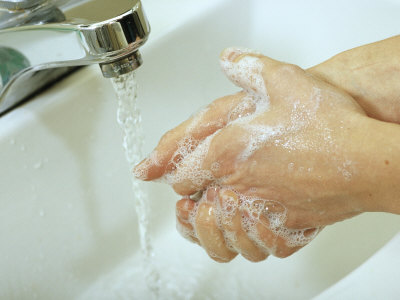 Keeping hands clean through improved hand hygiene is one of the most important steps we can take to avoid getting sick and spreading germs to others. Many diseases and conditions are spread by not washing hands with soap and clean, running water. If clean, running water is not accessible, as is common in many parts of the world, use soap and available water. If soap and water are unavailable, use an alcohol-based hand sanitizer that contains at least 60% alcohol to clean hands.
Keeping hands clean through improved hand hygiene is one of the most important steps we can take to avoid getting sick and spreading germs to others. Many diseases and conditions are spread by not washing hands with soap and clean, running water. If clean, running water is not accessible, as is common in many parts of the world, use soap and available water. If soap and water are unavailable, use an alcohol-based hand sanitizer that contains at least 60% alcohol to clean hands.
Tag: infection
Hand Washing: Reducing the Risk of Common Infections
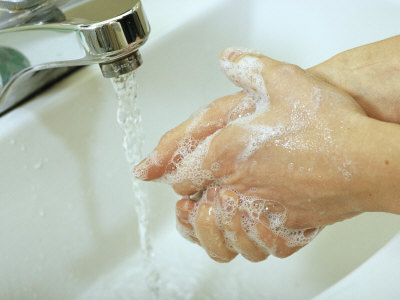 Is it important to wash your hands?
Is it important to wash your hands?
Simply put, yes. Hand washing is the single most effective way to prevent the spread of infections. You can spread certain “germs” (a general term for microbes like viruses and bacteria) casually by touching another person. You can also catch germs when you touch contaminated objects or surfaces and then you touch your face (mouth, eyes, and nose).
“Good” hand washing techniques include using an adequate amount of soap, rubbing the hands together to create friction, and rinsing under running water. The use of gloves is not a substitute for hand washing.
via Hand Washing: Reducing the Risk of Common Infections : OSH Answers.
Pneumonia Can Be Prevented – Vaccines Can Help
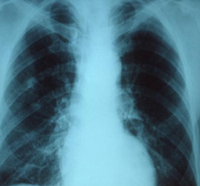 Pneumonia is an infection of the lungs that is usually caused by bacteria or viruses. Globally, pneumonia causes more deaths than any other infectious disease. It can often be prevented and can usually be treated.
Pneumonia is an infection of the lungs that is usually caused by bacteria or viruses. Globally, pneumonia causes more deaths than any other infectious disease. It can often be prevented and can usually be treated.
Every 20 seconds, somewhere in the world, a child dies from pneumonia. Many of these deaths are preventable through vaccination and appropriate treatment.
via CDC Features – Pneumonia Can Be Prevented – Vaccines Can Help.
MRSA and the Workplace
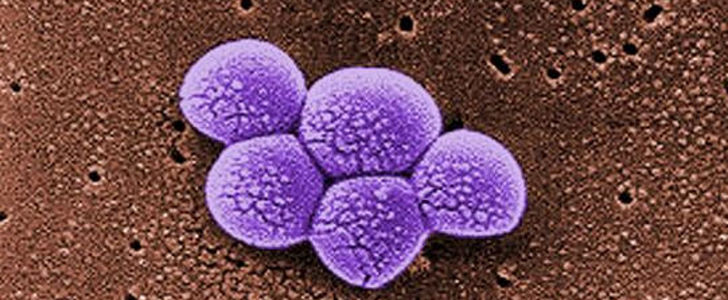 Staphylococcus aureus, often referred to simply as “staph,” is a type of bacteria commonly carried on the skin or in the nose of healthy people. Sometimes, staph can cause an infection. Staph bacteria are one of the most common causes of skin infections in the United States. Most of these skin infections are minor such as pustules and boils and can be treated without antibiotics. However, staph bacteria also can cause serious infections such as surgical wound infections, bloodstream infections, and pneumonia.
Staphylococcus aureus, often referred to simply as “staph,” is a type of bacteria commonly carried on the skin or in the nose of healthy people. Sometimes, staph can cause an infection. Staph bacteria are one of the most common causes of skin infections in the United States. Most of these skin infections are minor such as pustules and boils and can be treated without antibiotics. However, staph bacteria also can cause serious infections such as surgical wound infections, bloodstream infections, and pneumonia.
via CDC – MRSA and the Workplace – NIOSH Workplace Safety and Health Topic.
Dangers of Staph Infections
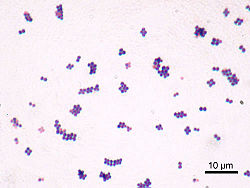 Staph infections are caused by staphylococcus bacteria, a type of germ commonly found on the skin or in the nose of even healthy individuals. Most of the time, these bacteria cause no problems or result in relatively minor skin infections.
Staph infections are caused by staphylococcus bacteria, a type of germ commonly found on the skin or in the nose of even healthy individuals. Most of the time, these bacteria cause no problems or result in relatively minor skin infections.
But staph infections can turn deadly if the bacteria invade deeper into your body, entering your bloodstream, joints, bones, lungs or heart.
In the past, a lethal staph infection might have occurred in a person who was hospitalized or had a chronic illness or weakened immune system. Now, a growing number of otherwise healthy people are developing life-threatening staph infections. And many staph infections no longer respond to common antibiotics.
